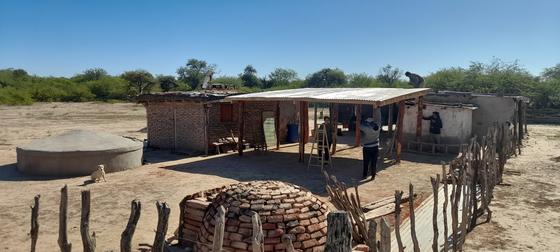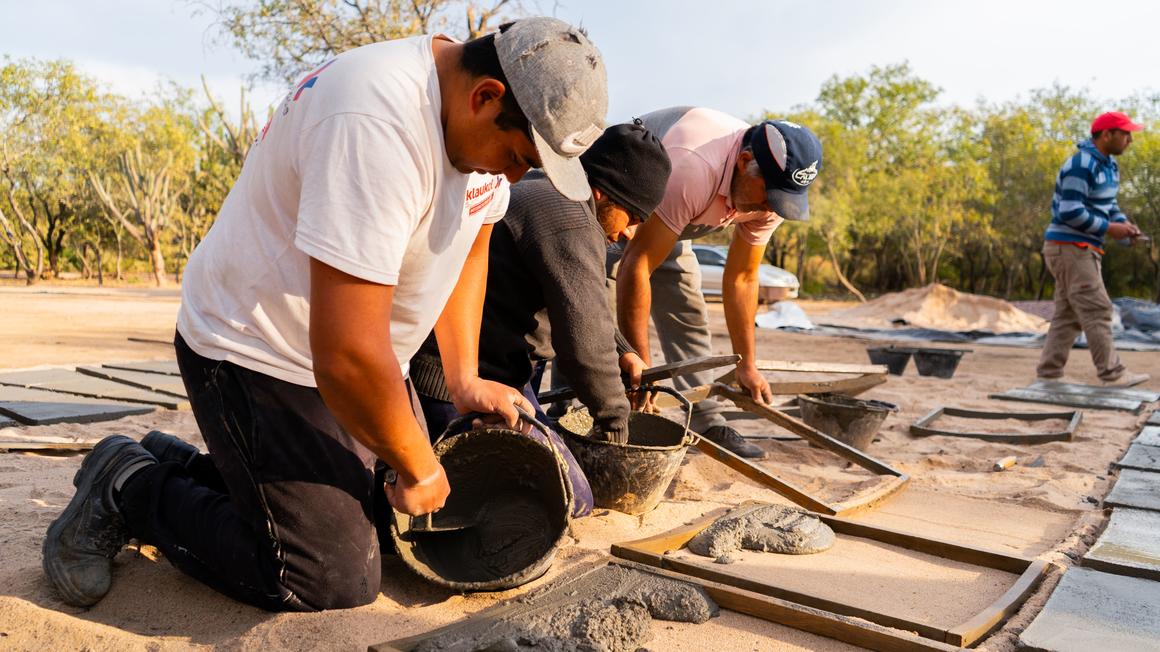
Self-built water systems for rural families in Northern Argentina

Rural scattered villages of San Antonio Oeste, Caranchi Pozo and Mailín Viejo are characterised by long periods of drought that can last over six months, accelerated by climate change. In addition to the socioeconomic vulnerability that already affects them, families face limited access to safe water sources due to their isolation. It is estimated that 81% of families in San Antonio Oeste must travel far to fetch water, with half of them making the trip more than once a day, while 65% of them do not have any water storage system at all.
-
7community assemblies and 5 trainings were held
-
159inhabitants benefited from the project
-
14rainwater harvesting roofs and cisterns built

The project started in November 2023 in partnership with Engineering without Borders Argentina, aimed to facilitate access to safe water by installing rainwater harvesting and storage systems, sized so that each family can access clean water for basic household activities during the dry season. It implied as well to build technical capacities for the self-construction of water solutions alongside more than 40 rural families in the three villages to grow their autonomy.
After several assemblies held to agree on the objectives, planning and organization, the project started with community trainings for the construction of cisterns and roofs, providing families with their first paid work experience in building water systems. The technical work then took place with the construction of cement plate cisterns allowing to have 16,000 liters of water available, rainwater harvesting roofs and manual pumps. Workshops on maintenance and repairing, as well as efficient water management were also deployed to transfer technical skills to families and sustainably strengthen their self-management capacity.
In total 7 assemblies were held, 5 trainings were deployed, 14 rainwater harvesting roofs and cisterns were built. This successfully completed project is directly benefitting 159 inhabitants in the three villages, all now able to collect and store rainwater.
Learn more about the project here


